Click here to register to IFAW's Stakeholder Newsletter and learn more on the work we do at the EU level to help animals and people thrive together.

December 2023
The last few weeks have been very eventful for IFAW’s EU team. The EU institutions have taken several political decisions that will have a direct impact on the conservation and welfare of wild animals.
Of note are the agreements on the texts of the landmark Nature Restoration Law and the revision to the Environmental Crime Directive. Both laws represent a step forward. However, the compromises between the institutions also mean that shortcomings remain. IFAW will continue to work to close any remaining gaps.
Together with its partners, IFAW has taken stock of the situation one year after the revision of the EU Action Plan against Wildlife Trafficking. In addition, IFAW has also set up a global e-learning platform that will enable law enforcement officials to better deal with confiscated wildlife species.
Finally, the COP28 climate conference closed last week. IFAW was on site and championing the role of nature, and specifically animals, as a solution to the climate crisis. Read our assessment of the conference and its results below.
At the end of this year, it is a good time to reflect on victories for animals in 2023. Check out our summary video. And now all that remains is for us to thank our partners and supporters for their excellent cooperation. We wish you happy holidays and a peaceful New Year.
In November 2023, following challenging negotiations, the EU institutions agreed on the Nature Restoration Law, aiming for a minimum of 20% restoration of EU land and sea by 2030. This is a major milestone for the protection of nature and wildlife. While commendable expansions were made, loopholes might hinder efforts, especially in preventing deterioration. Concerns remain about its effectiveness due to compromises diluting key aspects and offering member states more flexibility.
Also in November, the EU completed the revision of the Environmental Crime Directive, broadening the scope of offences and imposing higher penalties for serious, long-lasting, and irreversible ecosystem damage. IFAW welcomed the updated directive which now also includes measures for a wider range of environmental crimes, improved implementation strategies, and specific thresholds and sanctions. Notably, it addresses for the first time underwater noise pollution impacting marine mammals, a change supported by IFAW. Unfortunately, maximum limits for penalties and sanctions on environmental crimes remain inadequate.
In November's plenary session, the European Parliament adopted its position on revising the Ship-Source Pollution Directive. IFAW appreciated this move due to the alarming rise in maritime transport-related pollution over recent decades. While acknowledging the incorporation of several recommendations into the text, IFAW noted that the Directive's scope remains limited, and the number of enforceable measures falls short.
In Brussels on November 16, representatives from Member States, the EU Commission, the European Parliament, experts, and civil society convened to mark one year since the publication of the Revised EU Action Plan against Wildlife Trafficking. Discussions highlighted progress, urging dedicated implementation, and addressing challenges such as care for confiscated animals, enforcement hurdles, and legislative gaps enabling illegal species entry into the EU.
The COP28 climate change conference in Dubai marked a significant shift towards integrating nature into global climate strategies. IFAW's experts highlighted a pivotal shift towards including biodiversity in global climate strategies, emphasizing the crucial role of animals in combating climate breakdown. While recognizing the importance of protecting ecosystems, urgent action remains paramount for an integrated approach merging climate and biodiversity agendas.
Law enforcement agencies globally can now access a pioneering online learning initiative focused on safely and compassionately handling live animals seized in illegal trade. This program developed by IFAW and several partners aids law enforcement officers in safe confiscation practices. Available or soon to be offered in eight languages, it aims for widespread accessibility. The courses are hosted through IFAW's Academy of Rescue and Conservation and are exclusively accessible to authorized law enforcement agencies.
To mark the International Day for Disaster Risk Reduction on 13 October, EurActiv published an op-ed by Staci McLennan, Director of Policy, Europe. Among other things, the author called for animal welfare to be recognised as part of the response to emergencies and disasters.
As 2023 draws to a close, let us reflect on ten impactful ways your support has empowered us to safeguard and preserve animals throughout this year. Through the generosity of our supporters, IFAW facilitated the transportation of a dozen big cats from conflict-affected regions in Ukraine, inaugurated a new Dolphin Rescue Center, and provided swift aid in response to global disasters.
-- Download the December 2023 issue of the newsletter.
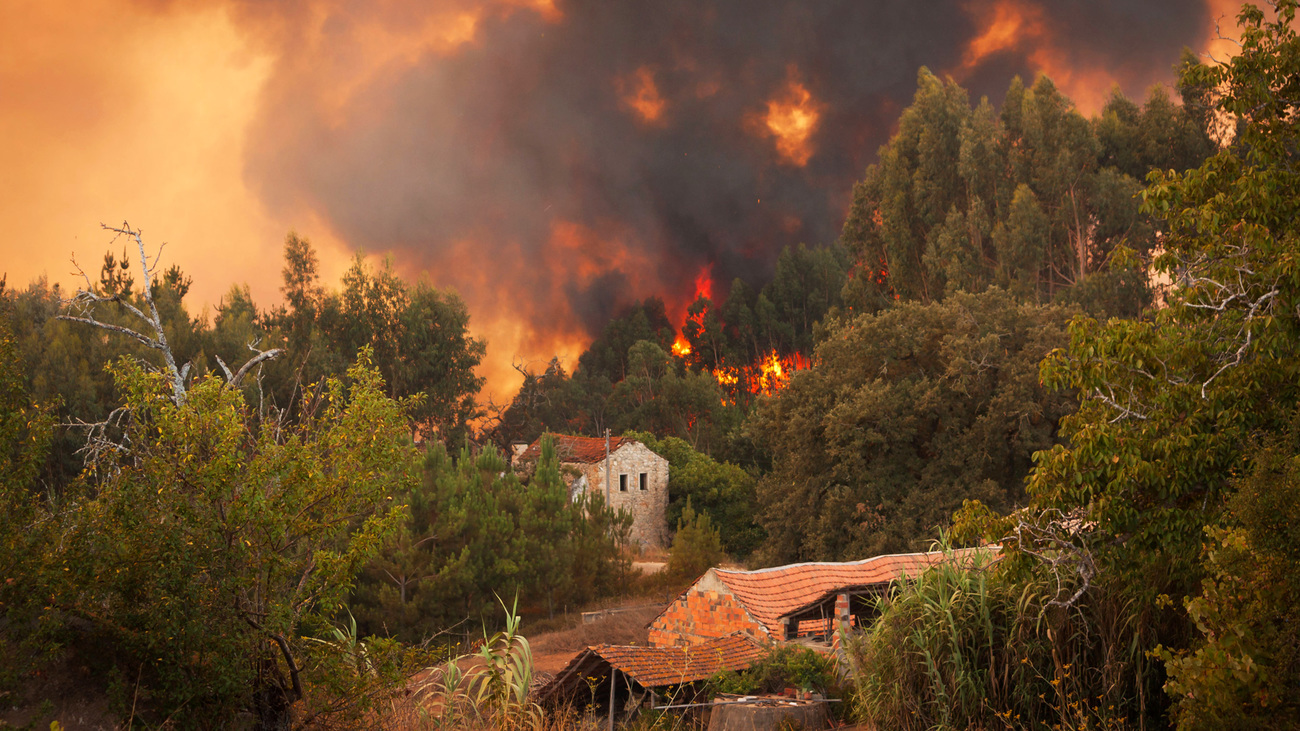
October 2023
As we return from summer, for many a time to connect with nature, Europe and the world have been reminded that failure to protect nature not only contributes to biodiversity loss it comprises our best defence to climate change-induced natural disasters.
The EU Nature Restoration Law, perhaps the most important piece of EU biodiversity legislation in the last 30 years, comes at a time of the rapidly progressing and mutually reinforcing triple crises of climate change, biodiversity loss, and environmental degradation. Yet it only passed in a narrow vote this July, and upcoming negotiations will be crucial. IFAW will join forces with other stakeholders to ensure this vital tool of the European Green Deal is adopted.
With our vision for Room to Roam, IFAW participated in the Africa Climate Summit this September where nations collectively acknowledged the value of nature and biodiversity for African development and the vital fight against climate change.
All eyes will now turn to the UN Framework Convention on Climate Change as the 28th Conference of the Parties (COP28) kicks off in Dubai this November. For more on IFAW’s priorities, check out 8 nature-based climate solutions that protect our planet.
Sadly, this summer was a stark reminder that disasters are escalating in frequency and severity around the world. IFAW recently responded to the ecological disaster resulting from wildfires in Greece and we’re rushing aid and supplies to Morocco and Libya following a recent earthquake, storm, and dam failure. IFAW knows that helping animals impacted by disasters can contribute to nature’s recovery as illustrated by this beautiful success story of a koala bushfire survivor spotted back in the wild with her second joey!
Read more about our latest work below. And please don’t forget to add your name to the more than 85,500 signatories who have supported our Blue Speeds campaign to protect Europe’s marine life.
With over 80% of European habitats deteriorated, the Nature Restoration Law aims to restore ecosystems, habitats and species across the EU’s land and sea. The goal is to enable long-term and sustained recovery of ecosystem health and bolster resilience against climate change.
IFAW launched a new report this month, identifying the scale and economic value of the trade in shark products by the EU and spotlighting a potential lack of enforcement and underreporting of illegal trade by Member States. Not only is the scale of the trade staggering, but the EU also seems to provide a platform for transit of illegal shark products.
In June, the citizens of the EU will exercise their democratic rights by heading to the polls to elect their representatives for the European Parliament. We call for decisive actions by policymakers in 2024 and beyond, with the goal of creating a better world for animals, people, and the planet.
The information we receive from Jack’s GPS collar is integral to our Room to Roam initiative. With every ping of Jack’s GPS, we learn about the dynamics and travel habits of his herd. By pinpointing their routes, we can ensure those specific areas remain accessible and safe into the future.
Currently, most climate investments focus on emissions reduction, carbon removal, or adaptation. Yet investment in nature is the most effective tool we have to address the climate crisis. To sustain the level of impact we’ve had to date, new approaches and partnerships can drive solutions forward.
The world’s largest land animal faces many threats, and so do the people who live alongside them. What is human-elephant conflict and what are some of its causes--and solutions?
-- Download the October 2023 issue of the newsletter.
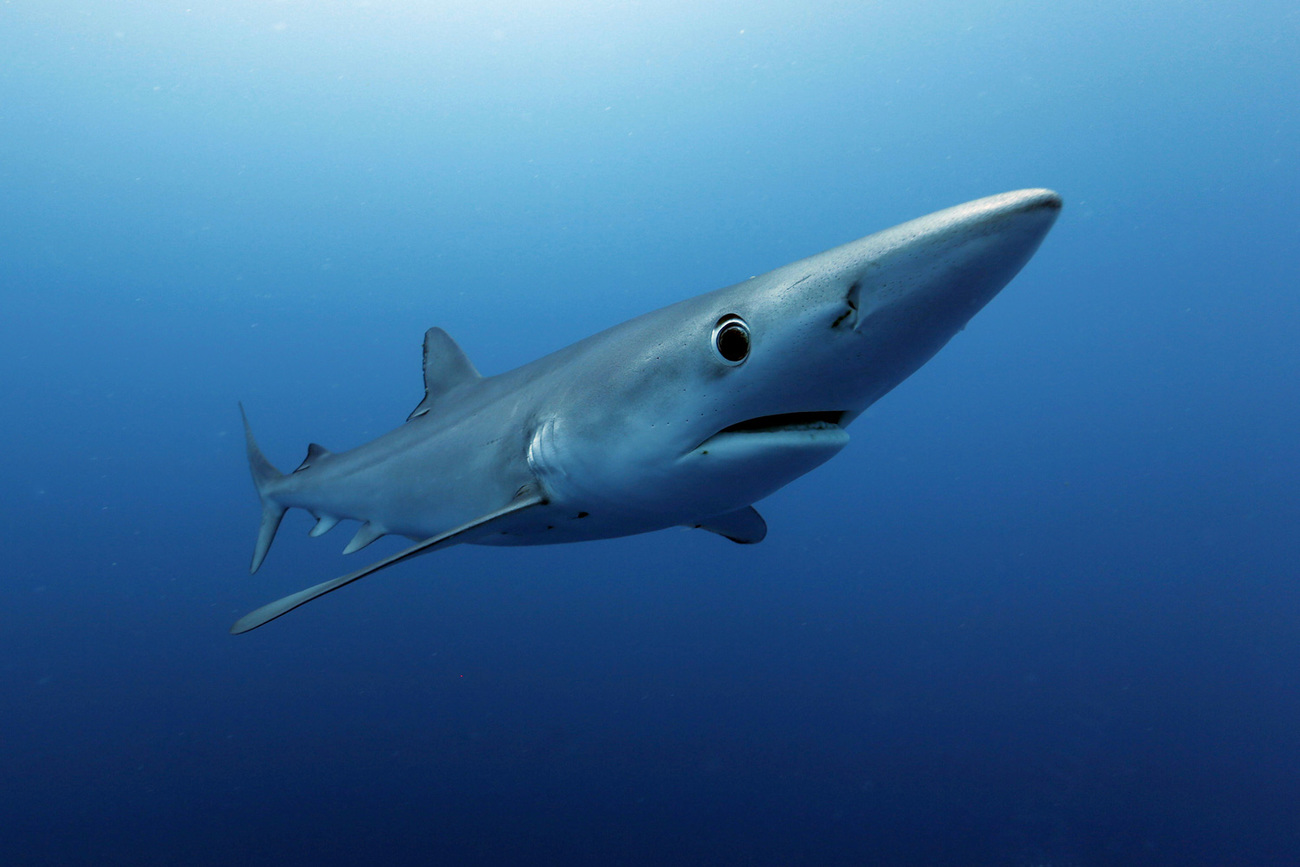
May 2023
Since the time of our last newsletter, important international policy decisions were taken at 19th Conference of the Parties (CoP19) of CITES and the UN Convention on Biological Diversity (CBD) in late 2022, pushing forward steps to protect species and restore biodiversity:
- First at CITES in Panama, a groundbreaking decision was taken by world governments that promises to turn the tide for shark conservation, with nearly 100 species of shark and ray awarded increased protections.
- Then at CBD, an ambitious Global Biodiversity Framework was negotiated, which aims to halt the nature crisis that is threatening up to a million species with extinction, as well as the natural systems that support life on Earth. Now it is time for countries to put words into action through implementation to achieve the 30x30 goals.
In the first months of 2023, the health of our oceans has been a top priority:
- Following two decades of talks, the UN High Seas Treaty was signed into existence this March, enabling the establishment of marine protected areas outside of national boundaries and setting new standards for the assessment and management of human activities in the open ocean.
- IFAW’s own Blue Speeds campaign has now collected more than 50,000 signatures (sign here!) and received the support of Caroline Roose MEP. In addition, the EU has adopted underwater noise limits requiring Member State action to address this pervasive and invisible pollutant.
- In February, the EU Action Plan on “Protecting and restoring marine ecosystems for sustainable and resilient fisheries”was published by the EU Commission. This long-awaited document aims to make EU fisheries more sustainable and resilient, but does it lack true ambition to see it through?
The year ahead promises to focus increasingly on climate change and disaster resilience:
- With our vision for Room to Roam, IFAW is set to play a significant role in the lead up to the African Climate Summit this September. All eyes will then turn to the UN Climate Change Conference (COP28) in Dubai in November.
- Disasters are escalating in frequency and severity, and as such, the European Commission has adopted Disaster Resilience Goals to strengthen the EU’s collective capacity to support prevention, preparedness and response to future disasters. We believe animals and wildlife must be factored in.
Read more below!
In February 2022, under intense bombing, Ukrainian families grabbed their pets and anything they could carry and fled to Poland and other neighboring countries. After one year of giving aid, the war is ongoing and IFAW must constantly adapt to tackle the changing needs on the ground, guided by one unwavering principle: Helping animals also helps those who care about them. What's next?
From wildfires to floods that have ravaged parts of Europe, disaster events damage infrastructure, cause significant economic losses and claim lives. Adding to it the crisis of war, and environmental impacts yet to be understood. Humans are not alone in facing the outcomes of disasters; animals and wildlife are impacted by these events and endure the aftermath that can produce widespread death, habitat fragmentation and destruction. See how animals matter and what the EU can do here.
After nearly two decades of talks, United Nations member states have agreed on a legal framework aimed at greater protection and management of the open ocean. Once in force, the UN High Seas Treaty will enable the establishment of marine protected areas (MPAs) in the high seas—the parts of the ocean that lie outside of national boundaries and cover half of our planet’s surface. This represents the largest habitat on Earth, home to millions of species, and our greatest ally against climate change. Read more here.
As we take a look back on 2022, we were inspired by many significant ways in which people have helped animals over the past year. Big cats, elephants, blue whales, orangutans and sharks all feature in our past year’s efforts to conserve, rescue and protect individuals, populations and species around the globe. Enjoy and share here.
This March, IFAW and MEP Michal Wiezik (Renew Europe) organized a screening of the documentary film Wolf at the European Parliament in Brussels. In a political context, where the return of wolves to regions in Europe where they had been absent for decades remains a highly controversial issue, the documentary presents the crucial role of the apex predator in preserving our biodiversity. Lessons of coexistence apply to wildlife in Europe as well as Africa where IFAW is implementing Room to Roam. Learn more about IFAW’s collaboration here.
The EU Action Plan on “Protecting and restoring marine ecosystems for sustainable and resilient fisheries” was published by the EU Commission in February. This long-awaited document aims to make EU fisheries more resilient, encouraging sustainable fishing practices while ensuring that fishing interests contribute to the protection and restoration of the marine ecosystems on which they depend. But does it lack true ambition to see it through? Learn more here.
-- Download the May 2023 issue of the newsletter.
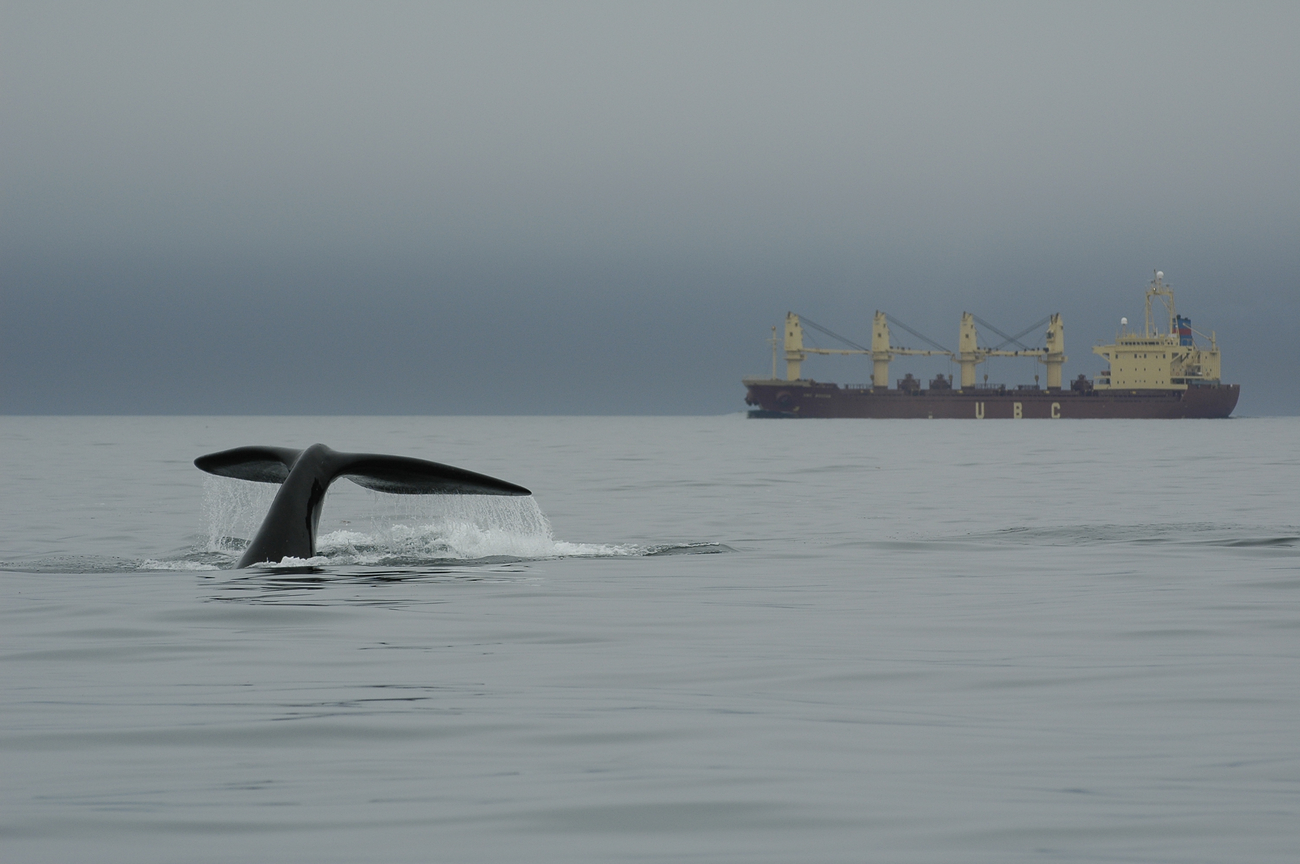
November 2022
Underwater noise pollution has been impacting marine mammals for decades. The increasing number of ships travelling across the seas is disrupting the underwater lives of these animals and putting their survival at risk.
IFAW has come up with a realistic, quick-to-implement and effective solution: reduce shipping speeds (aka blue speeds). The latest economic research shows that in addition to reducing to ocean noise, the risk of ship strikes and greenhouse gas emissions, blue speeds could also lead to an estimated 4.5 billion euros in socioeconomic benefits. Read more about our Blue Speeds Campaign below and sign the petition calling on European institutions to adopt Blue Speeds, an EU-wide measure for the implementation of slower ship speeds as a condition of entry into European ports.
Around the world, disasters are escalating in frequency and severity. In Europe, severe flooding hit Belgium, Germany, the Netherlands, Spain and Sicily in 2021, and summer heat waves and wildfires scorched France and other countries in southern Europe in 2021 and 2022.
Launched on 13 October, the International Day for Disaster Risk Reduction, IFAW’s report Beyond Rescue: Animals in Disasters – Europe finds that current humanitarian models of disaster management in Europe neglect the inclusion of animals in policies and planning, thus endangering the lives of people and animals. This is why IFAW is advocating for critical policy changes to include animals in disaster.
Our team continues to combat wildlife crime in Europe. Following our advocacy efforts, the adoption last summer of the Digital Services Act sets the foundation to tackle wildlife cybercrime. Looking to Southeast Asia, the EU is funding the Partners against Wildlife Crime initiative where IFAW organized a workshop to share lessons learned and best practices in counter wildlife cybercrime efforts.
While progress is being made to fight wildlife trafficking our latest joint report Stolen Wildlife revealed the EU continues to be a main hub and destination for wildlife, which has been ‘stolen’ from Latin America, Africa, the Middle East, Asia and Oceania.
Speed reduction for commercial ships entering and leaving EU waters could bring up to 4.5 billion Euros in socioeconomic benefits, along with having a sizable effect in to reduce noise pollution, greenhouse gas emissions and the risk of collision with whales. Read the IFAW-commissioned independent CE Delft study here.
A new report released by IFAW finds that an increase in the frequency and severity of disasters in Europe requires critical policy changes to address the impact on animals. Read more here.
The European Parliament urged the European Commission and Member States to take a stronger stand against illegal wildlife trade and to further protect threatened species at CITES CoP19. Read more here.
Civil society groups from across Southeast Asia met to explore ways to improve their abilities to combat wildlife cybercrime—the illegal online trade of wild animals. Learn more here.
This joint report exposes European complicity in illegal wildlife trade, with EU citizens not only being involved in the smuggling of nationally protected wildlife, but also perpetuating the market for these animals. Read more here.
-- Download the November 2022 issue of the newsletter.
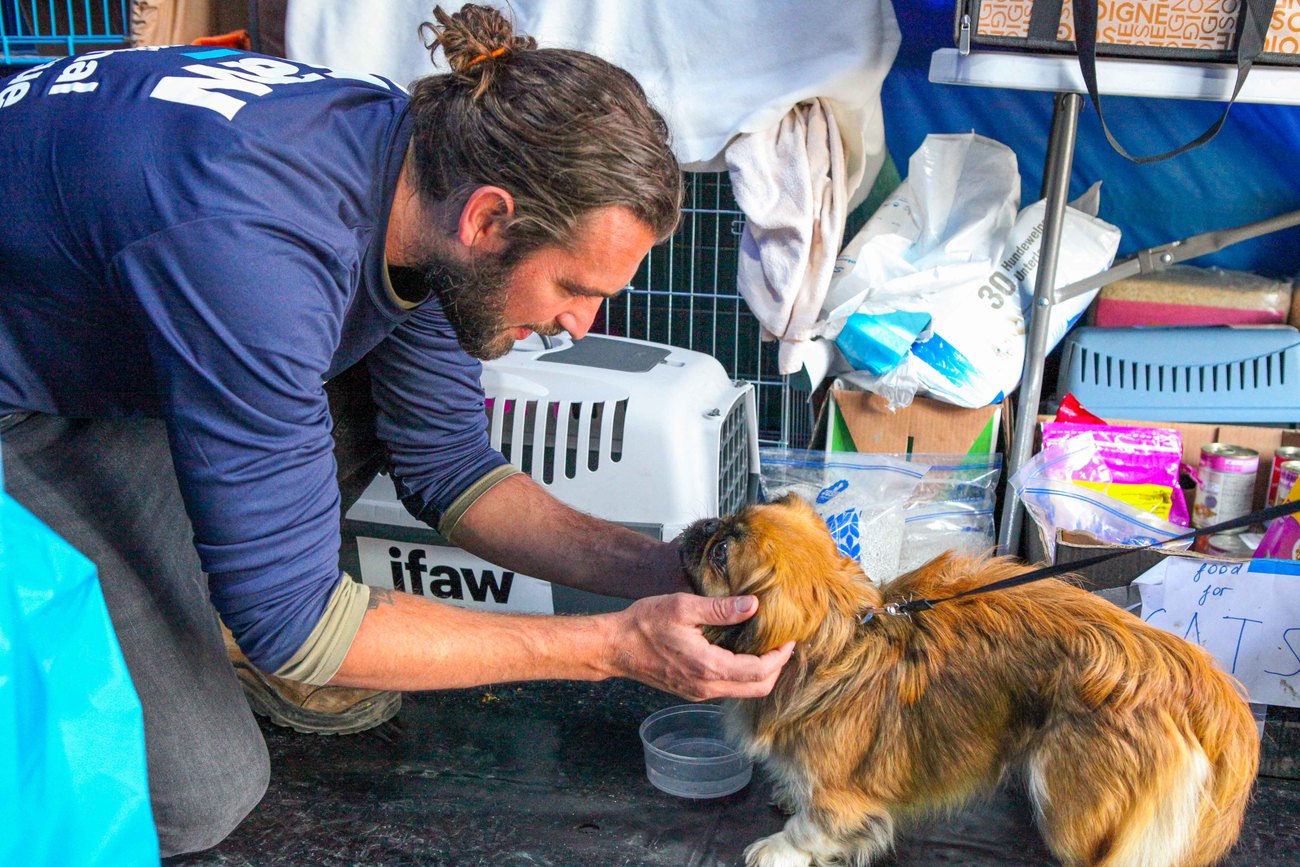
June 2022
As summer arrives and many prepare for holidays, it is time to reflect on both the challenges and accomplishments of these last months. We find ourselves at a pivotal time in Europe and globally. How we move forward will have profound impacts on animals, people and the places we call home.
Since the Russian invasion of Ukraine in February, IFAW’s Disaster Response team, together with our partners, has been at the forefront of the crisis providing urgent support to animals. We have worked to support refugees and their pets, fund shelters and zoos in need of critical supplies, and aid with animal rescues. More than 42,000 companion and wild animals, predominately cats and dogs, and wild animals like bears, bats and tigers have been directly helped.
We have seen first-hand that the lack of awareness, training and recognition of the role of animals in Disaster Response policy can hamper the capacity of civil protection and veterinary services to offer timely and critical aid. IFAW will advocate to rectify this significant gap in European policy. Below you can read a first-hand account of our Communications Manager who deployed near the Ukrainian border, as well as, an IFAW report Animals, people and war: the impact of conflict.
This edition of our EU newsletter includes our latest Annual Report highlighting incredible stories and successes. One such story takes place in IFAW funded leased habitat in the Panda Masuie Forest Reserve in Zimbabwe. In this reserve located in the network of protected areas of the Kavango-Zambezi Transfrontier Conservation Area, four rescued and rehabilitated orphaned elephant calves successfully began living among wild elephant herds. The released elephants are tracked with collars to provide insights into their integration in the wild.
In early June 2022, there was further good news for elephant conservation, as the UK ban on ivory trade adopted over 3.5 years earlier finally came into force.
Now we look ahead and focus our work on the revision of the Environmental Crime Directive, the adoption of the Digital Services Act to help tackle wildlife cybercrime and calling for strong EU leadership at the CITES 19th Conference of the Parties (CoP 19) in Panama this November.
We wish you a rejuvenating summer break and look forward to meeting in-person this autumn to work together to protect animals, people and the places we call home.
IFAW has remained steadfast in our dedication to protecting animals, people & the places we call home. Read about incredible stories & successes from the past year in our annual report.
IFAW applauds the continued EU global leadership on shark conservation by its decision to co-sponsor Panama’s proposal at CITES CoP19. Learn more about what it means for sharks.
Our Communications Manager was deployed at the Ukrainian border to join our team of responders helping refugee families and their animals. Learn more about his experience here.
The impact of conflict regularly spills over into the natural environment affecting individual animals, entire species and broader communities. Read more in our report.
IFAW and other groups campaigned tirelessly for many years calling for an end of the ivory trade in the UK. Three-and-a-half years after adoption, it finally came into force. Learn more here.
IFAW is joining forces with other international NGOs to advocate for an ambitious EU Directive on the protection of the environment through criminal law. Read more on our position here.
-- Download the June 2022 issue of the newsletter.
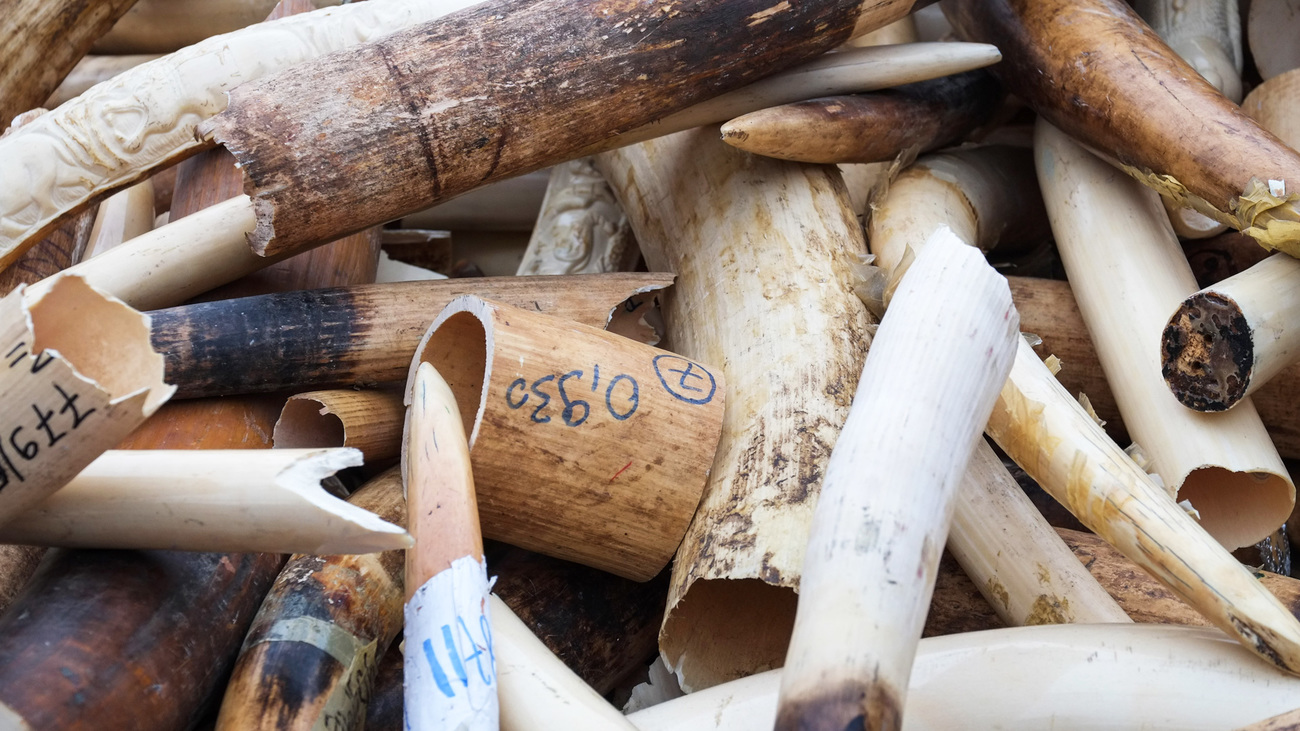
March 2022
As we enter the 3rd year with Covid 19, finally things are slowly moving in the right direction.
We first ended 2021 with the adoption of the long awaited European Commission’s new rules severely restricting trade in ivory. While there is more work to be done to protect elephants, this was a great step after so many years of hard work and a success to celebrate for IFAW and all our supporters.
With the slow return of the sun, we look forward to more happening in 2022. A good omen has been the adoption of the European Parliament’s position on the Digital Services Act, which will introduce new transparency requirements for companies that will make the detection of illegal wildlife products and law enforcement easier. Iceland has also announced the historic end of whaling for 2024, after over 20 years of campaigning by IFAW in the country.
Between the revision of the EU Wildlife Trafficking Action Plan and of the Environmental Crime Directive, this year has crucial topics on the EU agenda and we hope to celebrate more victories for animals and our planet.
To begin with, this month, IFAW released a new report on the global shark trade and the major role the EU plays in it. We are working hard to make sure that wish for our recommendations are heard and that strong international measures will be taken at international level during the CITES Conference of the Parties, planned at the end of the year.
We hope the content of this new edition of our newsletter interests you and as always, we remain available to discuss any issues further with you.
Only 25% of the global shark trade is currently subject to sustainable trade limits. Our latest report calls for countries, including the EU, to sustainably manage sharks and accurately track trade levels. Read the report.
We interviewed the MEP and Chair of MEPs for Wildlife to discuss the renewal of the Action Plan against Wildlife Trafficking and the new rules on ivory trade. Read the interview.
Iceland has announced the end to commercial whaling as quotas will end in 2024. 1,500 whales have been slaughtered since the country had resumed whaling in 2003. Watch the video.
Adopted in 2016 by the European Commission, the EU Action Plan against Wildlife Trafficking is currently up for renewal. IFAW has several recommendations for the revised version. Read the briefing.
The Digital Services Act proposal, amended by the European Parliament, introduces new transparency requirements for companies that will make the detection of illegal wildlife products & law enforcement easier. Read more here.
-- Download the March 2022 issue of the newsletter.
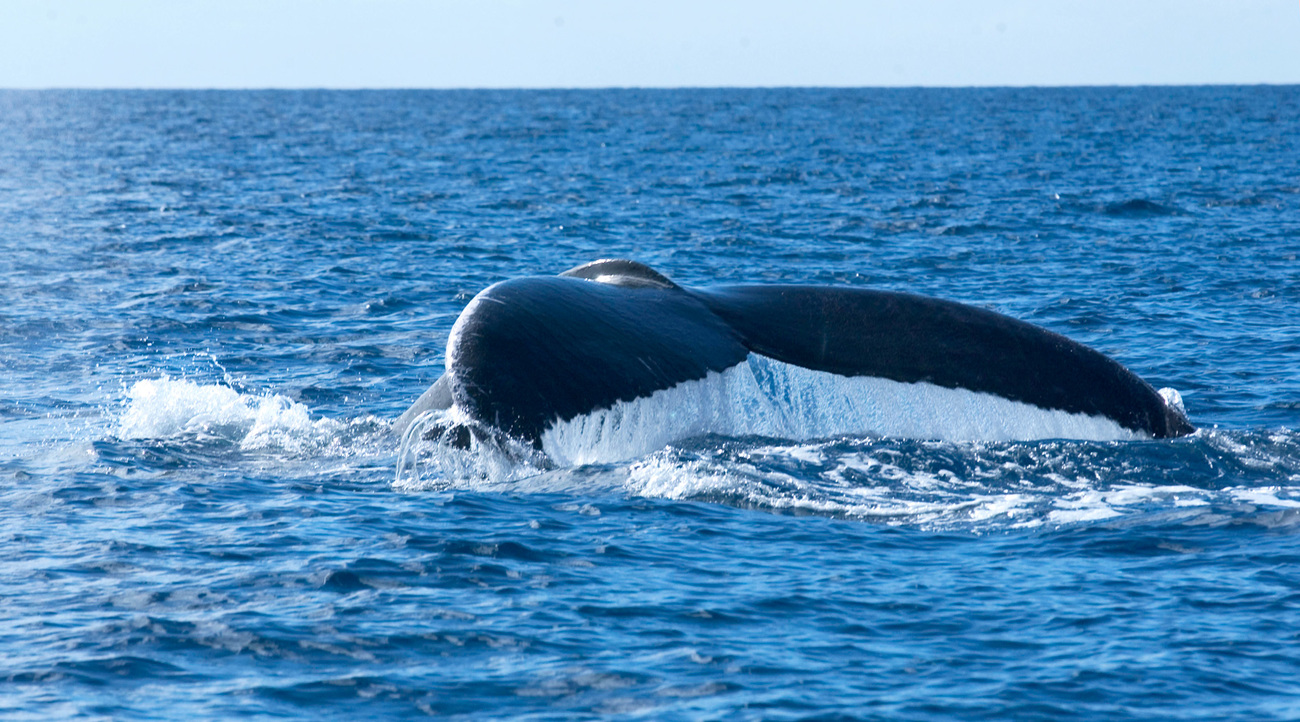
May 2021
As we all look forward to the summer, stretching in the sunlight from the confinement of this past year, we finally feel hope for the future.
The spread of vaccines and a stronger international political will on environmental issues seem to confirm it.
The end of captive breeding and canned hunting of lions in South Africa, a potential ban on EU ivory trade, the steep decline in demand for seal products, or the upcoming UN Biodiversity Conference (CBD COP 15) in October in China, are among the things to follow.
With this fourth issue of our newsletter, we wanted to share with you some of the latest work on wildlife cybercrime, the Belgian government’s efforts to tackle underwater noise, continued threats to harp seals, and detection dogs sniffing out wildlife crime in Benin.
We hope you will this content of interest, and, as always, we are ready to discuss any of these issues more in detail with you.
Here’s to seeing each other, face to face, soon!
IFAW co-organized a webinar on wildlife cybercrime, bringing together over 140 participants from various sectors to discuss the issue and come up with recommendations for better policy, prevention and enforcement. Read more here.
We interview the Belgian Deputy Prime Minister Responsible for the North Sea, to discuss the impact of underwater noise on our ocean and possible solutions to tackle this issue. Read the interview here.
IFAW was founded in 1969 to bring an end to the hunt for whitecoat harp seal pups on the East Coast of Canada. Despite an EU ban on seal products import in 2009, the hunt continues, and it’s not the only threat they face. Read more here.
In Benin, we’re training detection dogs to help us disrupt trafficking networks. While incorporating high animal welfare standards, the program allows dogs to become an integral part of the solution for disrupting the illegal wildlife trade. Watch the video here.
-- Download the May 2021 issue of the newsletter.
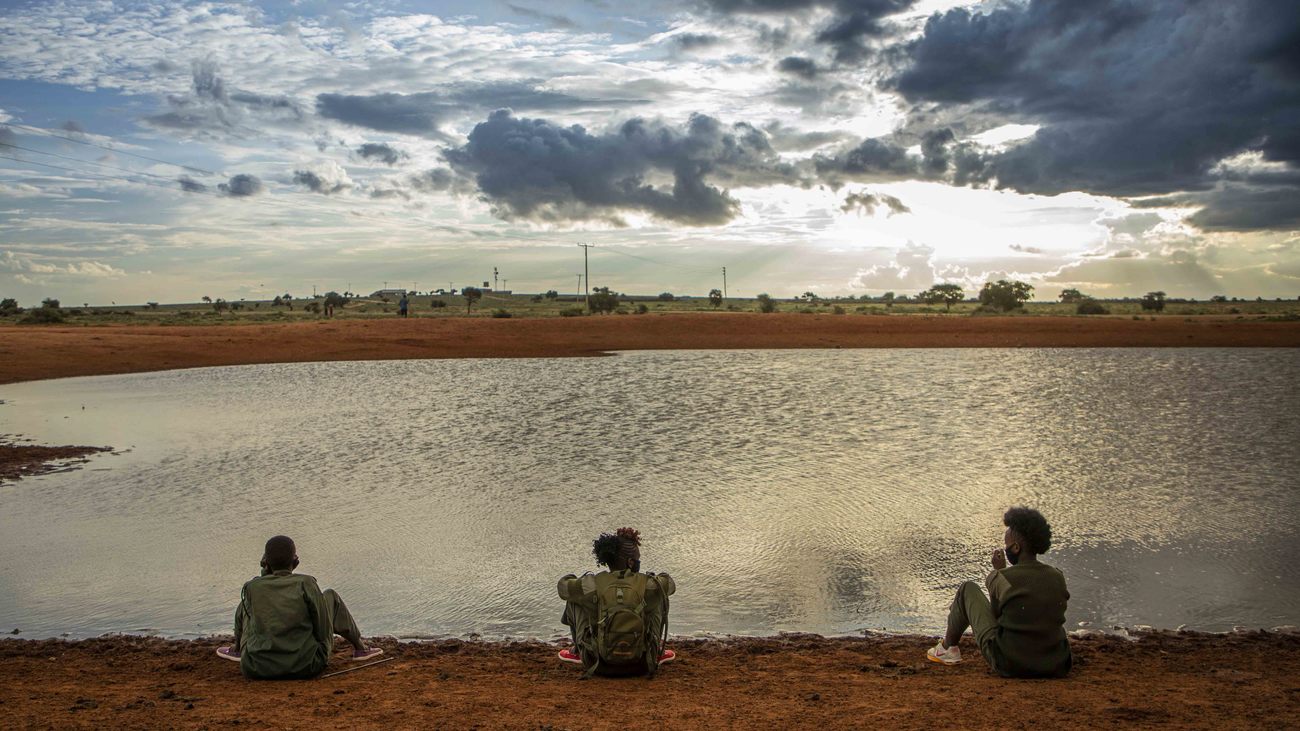
January 2021
We had high expectations for 2020, especially when it comes to biodiversity, but things went rogue and a global pandemic – a result of our unhealthy relationship with nature, shook us to the core.
Despite these unprecedented challenges, our work never stopped and IFAW achieved some great successes in 2020. We also witnessed positive developments at the European level with the EU Biodiversity Strategy to 2030, the agreement on the Neighbourhood, Development and International Cooperation Instrument (NDICI) for 2021-2027, and the recognition of the need for a Marine Action Plan to restore marine ecosystems.
We are now looking forward with hope and ready to make this year a strong stepping-stone for sustainable and meaningful change.
Nature will not allow us another decade of failures, so let’s get to work!
2020 was meant to be the ‘Super Year of Biodiversity’ but things went sideways, though some sparks of hope occurred. It is time to look forward and spur a transformational change in how we interact on this planet. Read more.
We interview the Director for Natural Capital in DG Environment, Humberto Delgado Rosa, to discuss the EU Biodiversity Strategy for 2030 and the role of the EU ahead of the next CBD CoP in China. Read the interview.
The European institutions have incentivised one of the main threats to the critically endangered North Atlantic right whale, by eliminating taxes on the import of lobster from the east coast of the US. Learn more.
Considered Endangered by the IUCN Red List, shortfin mako shark populations have declined significantly worldwide, driven by international demand for their fins and meat. But there is hope for some relief to these species. Read more.
IFAW and several other NGOs published a joint paper detailing 10 recommended actions on marine biodiversity in response to the EU Biodiversity Strategy for 2030 to ensure the long-term health of our ocean. See the briefing.
-- Download the January 2021 issue of the newsletter.
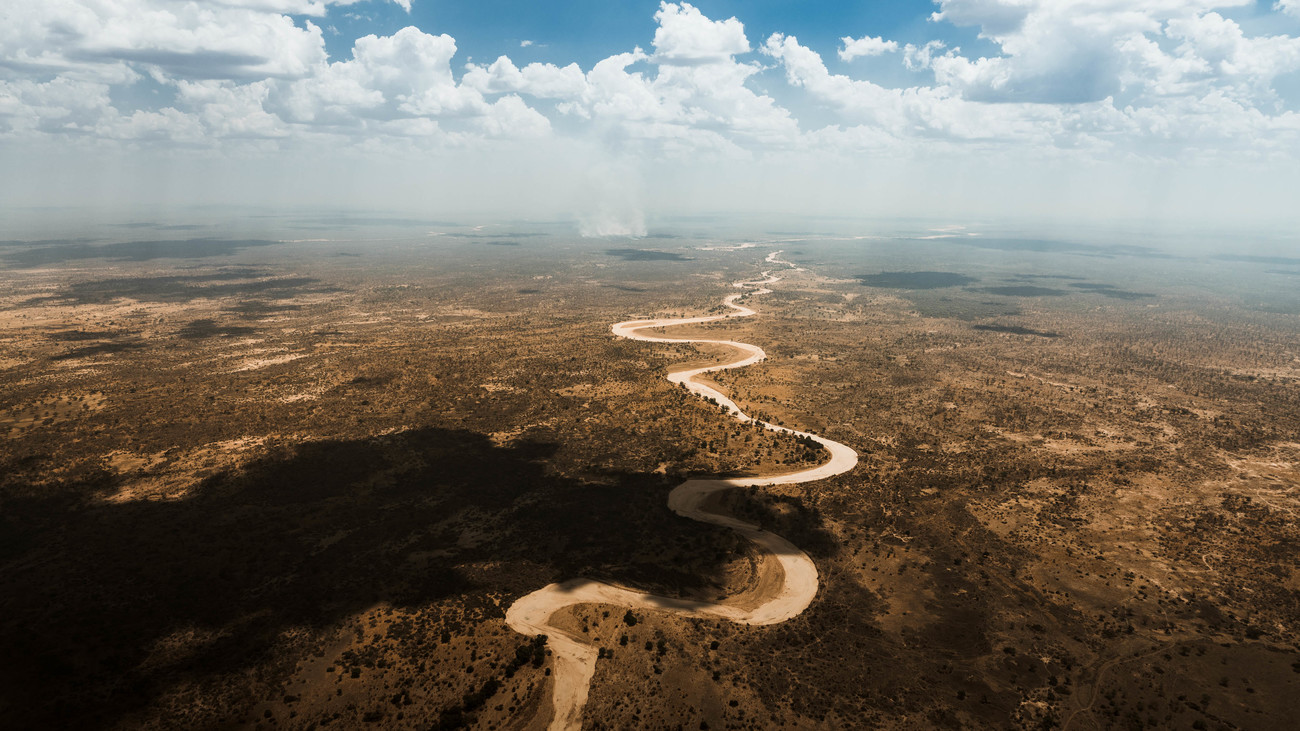
October 2020
It has been seven months since COVID-19 was officially declared as a pandemic, our lives have been changed, and we must shift towards a new way of living, working, consuming and engaging with our environment.
This second issue of our newsletter will indeed discuss our relationship with wildlife, which was a key factor that led us to the immensely tenuous situation we find ourselves in today. Our latest report “Beyond COVID-19” addresses that fact and discusses a wide range of actions to change the way we interact with our environment.
Some of these actions are at the core of our international policy work, especially at the European level. As the EU looks at ways to build back better and greener, the EU Green Deal and the Biodiversity Strategy for 2030 offer ambitious prospects for the future that must be aligned with external action. IFAW’s Director of International Policy, Matthew Collis, outlines the important role of EU leadership in this newsletter. We are calling for programme and funding to protect biodiversity in the new EU budget.
Our rescue efforts in the California wildfires or the patrol missions of our Team Lioness in Kenya can only be sustainable with the support of proper policies and sufficient funding to address wildlife and conservation issues. The role of the EU will be central in this regard, so that animals and people can thrive together.
Meet our International Policy Director, Matthew Collis, and read about the critical role for EU leadership to drive biodiversity protection on the continent and globally. Read the interview here.
Wildlife trade, habitat destruction, and loss of biodiversity are leading to an increased outbreak of zoonotic diseases. In this report, IFAW investigates ways that we can improve our relationship with wildlife and protect human health. Read our report.
With funding from the European Union, IFAW has worked with the International Union for Conservation of Nature to build a ranger outpost along the Uganda – DR Congo border, often used as a crossing point by wildlife criminals, to protect the Virunga National Park. Learn more here.
IFAW and other NGOs call on the EU to continue its leadership and set a 10% biodiversity target under the EU budget currently being debated. The EU Green Deal and budget are critical to the recovery strategy and development aid must address biodiversity.
-- Download the October 2020 issue of the newsletter.
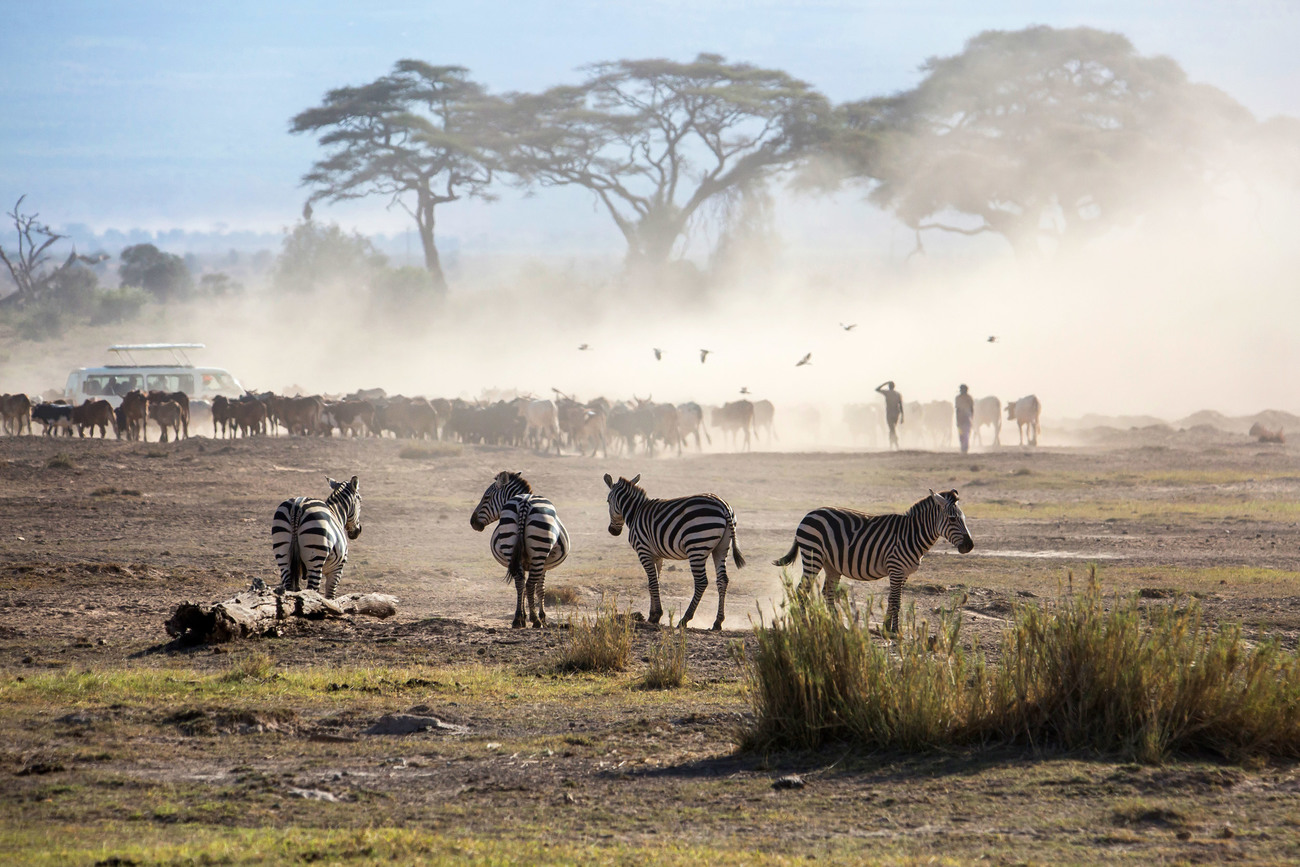
June 2020
In these difficult times, IFAW continues to work around the world so that animals and people thrive together.
The work we do on the ground can only be sustainable with the support of proper policies and sufficient funding to address wildlife and conservation issues. Our office in Brussels is dedicated to influence the European Union’s policy, legislation and international agreements, as decisions taken by the EU can have far-reaching impacts, not only in Europe, but globally.
It is our pleasure to share with you the first edition of our EU Office’s newsletter to keep you up to date with our work in Brussels and across the globe.
We hope the diversity of content and the achievements our teams have accomplished will be of interest to you. We look forward to working with you to protect animals, people and the place we call home.
We interviewed former MEP and founder of MEPs4Wildlife Catherine Bearder on the role of the European Parliament in addressing wildlife crime issues and the impact that COVID-19 pandemic will have on the protection of biodiversity. Read the interview here.
More than ever, the need to control wildlife trade is essential, which is why the EU should renew the Action Plan Against Wildlife Trafficking. IFAW continues to advocate for a ban on ivory trade.Take our quiz!
Weak sanitary measures and inadequate regulation on global wildlife trade have played a critical role in the pandemic. It is now imperative that the EU and Member States develop clear policies regulating wildlife trade, with criteria to safeguard biodiversity and public health as well as animal welfare. Read our Director’s op-ed here.
The pandemic is seriously impacting community rangers who continue to work in difficult conditions, facing additional threats, to protect both wildlife and community members. Read our Ranger FAQ here.
-- Download the June 2020 issue of the newsletter.
Related content
Our work can’t get done without you. Please give what you can to help animals thrive.